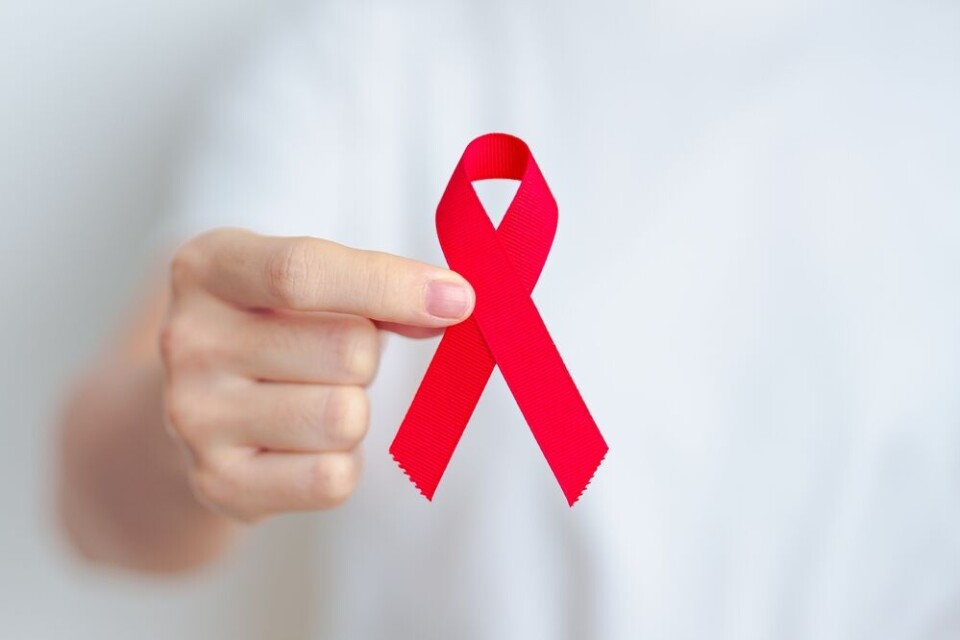-
Many Société Générale customers to be charged additional fees from April
There is some good news for international banking and instant transfers, however
-
Why gas prices in France are rising in April - and by how much
It comes after six consecutive monthly rises. Try these tips to reduce your bills
-
New notaire data suggests easing of Paris property crisis
Property experts have talked of ‘easing pressure’ and ‘breathing space’ after a four-year slump
World AIDS Day: Did you know HIV was a French discovery?
Three French scientists are credited with discovering the virus, while an American later discovered that HIV causes AIDS

On World AIDS Day (December 1), we take a look at the Nobel Prize-winning French scientists (one is somewhat controversial) who discovered the HIV virus that causes AIDS.
The three scientists involved in the virus discovery were Jean-Claude Chermann, Françoise Barré-Sinoussi, and Luc Montagnier.
Dr Montagnier and Professor Barré-Sinoussi shared the Nobel Prize for Physiology or Medicine in 2008, for their discovery of the human immunodeficiency virus (HIV), which causes AIDS (acquired immunodeficiency syndrome).
Prof Barré-Sinoussi is a French virologist, and is currently a Professor at the Institut Pasteur, and director of the retroviral infections centre l’Unité de Régulation des Infections Rétrovirales in Paris. Her work with Dr Montagnier and Dr Chermann in isolating the HIV virus would prove central to finding life-saving treatments.
Dr Chermann was a French virologist who led the research team under Dr Montagnier when the group discovered the virus. He was not included in the Nobel Prize win, but in 2008, political consultant Bernard Le Grelle campaigned for his official recognition by the Nobel committee, and found support from more than 700 doctors, professors and scientists for the cause.
In 1986, after years of competition, it was agreed that the French scientists could share credit for the discovery of HIV with US scientist Dr Gallo, whose work had also identified that HIV causes AIDS.
From death sentence to near-normal lives
The HIV virus sparked terror and devastation when it first appeared, especially among LGBTQIA+ communities in the 1980s.
Since then - when the virus was seen as a death sentence, killed people in their millions, and caused many to face severe prejudice due to their HIV ‘status’ - it is now managed by medication.
Patients who have access to the medication and take it consistently can now live near-normal and healthy lives with HIV, and are even no longer infectious. Dr Montagnier’s work - and that of his team and contemporaries - was instrumental in finding these treatments.
Yet, the virus is - of course - still rampant in some parts of the world, especially in West and Central Africa.
Up to 65% of all people living with HIV are in Sub-Saharan Africa, although even there, many countries are close to reaching the goal of 95% of “people who know that they are living with HIV being on lifesaving anti-retroviral treatment”, said a July 2023 report from UN agency UNAIDS.
The World Health Organization estimates that 85.6 million (some estimates say as many as 113 million) people have been infected with the HIV virus worldwide, and about 40.4 million people have died of HIV.
It estimates that worldwide, 39 million people were living with HIV at the end of 2022.
The first World AIDS Day took place on December 1, 1988. The day is intended to raise international awareness of the AIDS pandemic caused by HIV, as well as honouring and remembering all those who have died.
Later controversy
After the death of Dr Montagnier, in 2022 at the age of 89, President Emmanuel Macron praised his “major contribution” to the fight against the virus, “which remains one of the greatest medical and scientific challenges of the 21st century”.
In his later years, Dr Montagnier became a somewhat controversial figure in the scientific community. He claimed that the Covid-19 virus was laboratory-made, and that the vaccines against it were causing the new variants to spread.
He also defended discredited theories such as the ‘water memory’ principle, which is often touted among proponents of homeopathic treatments.
Read more: Homeopathy no longer reimbursed in France
Read more: French Nobel prize winner: ‘Covid-19 was made in lab’
In a statement after the scientist’s death, anti-AIDS association Aides said: “Today we praise the decisive role of Luc Montagnier in the joint discovery of HIV. This was a fundamental step forward, but one which was sadly followed by several years during which he drifted away from science, a fact we cannot conceal.”
Related articles
Divisive French virologist and Nobel Prize winner dies aged 89
Elton John and President Macron unite against AIDS
























